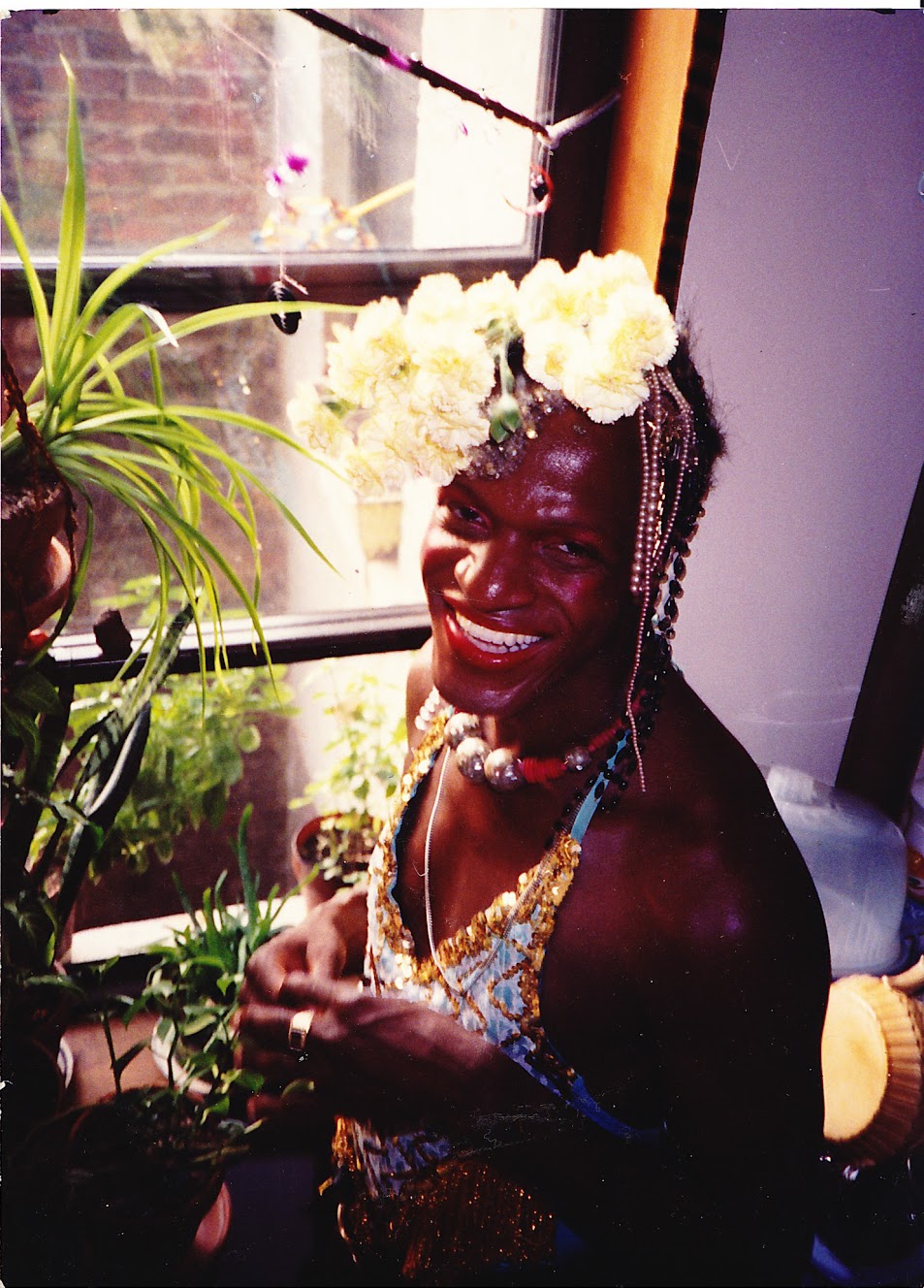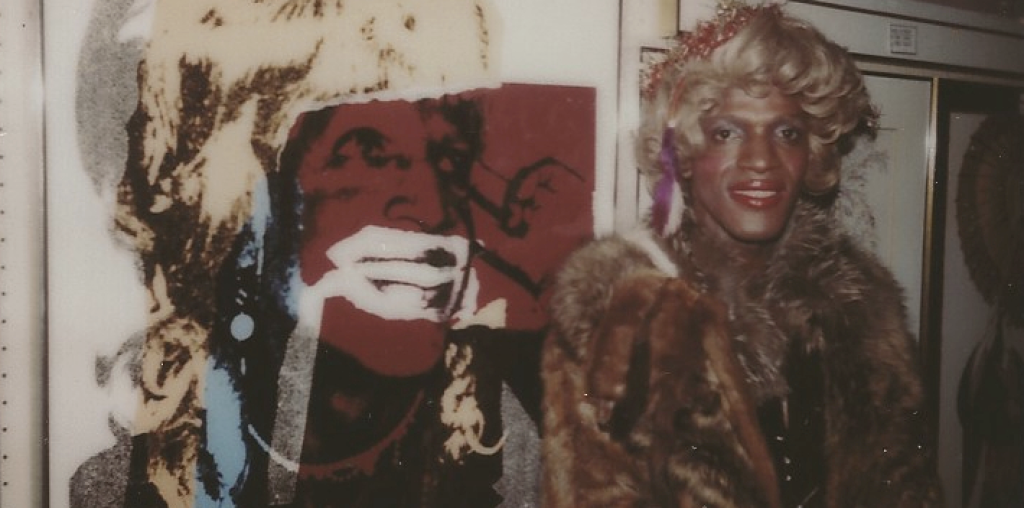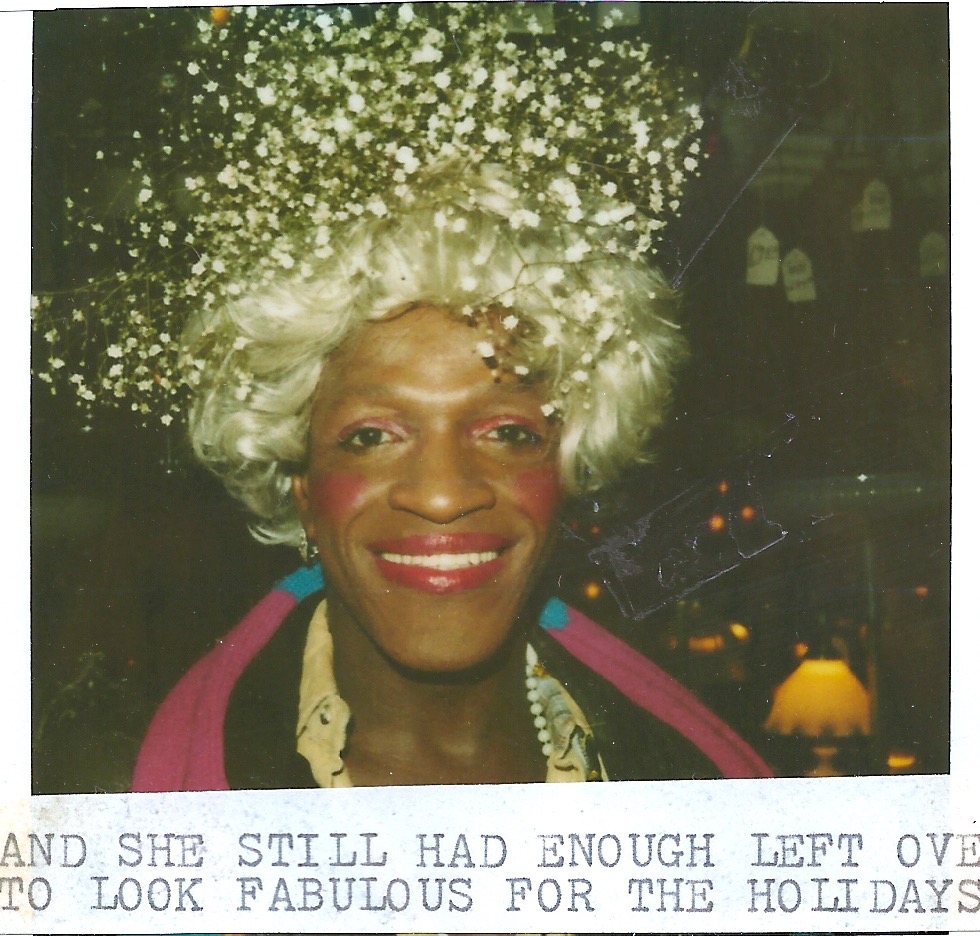
All photos courtesy of The Randy Wicker & Marsha P. Johnson Archive at the LGBT Community Center National History Archive.
In 1979, the cultural historian and documentarian Steven Watson interviewed the groundbreaking trans activist Marsha P. Johnson outside the Stonewall Inn, where, 10 years earlier, she had been one of the architects of the uprising that birthed the modern gay rights movement. “It was about time,” Johnson said. “That’s when I came out, at Stonewall.” Thanks to ARTIFACTS, a new online video platform digitizing a litany of archival interviews with titans of New York City arts and culture, we’ve published Watson’s full conversation with Johnson, who would’ve been 80 years old today. Below, she sounds off on sex work, drag queens, dirty cops, and the night that changed her—and our—lives forever.
———
STEVEN WATSON: How did you get the name Marsha Johnson?
MARSHA P. JOHNSON: People used to see how feminine I was so first they started calling me Michelle and then they started calling me Marsha. So I just kept Marsha. And I added on the Johnson.
WATSON: How’d you choose Johnson?
JOHNSON: Oh, I just looked at Howard Johnson’s restaurants and said, “Fabulous.”
WATSON: What does the “P” stand for?
JOHNSON: Aunt Dorrie used to say “Piola.” I used to use it as “Pay It No Mind” Jones.
WATSON: What were you like as a kid?
JOHNSON: I was one of those little religious church boys.
WATSON: Did you go to church a lot?
JOHNSON: Every Sunday, honey. I wanted to learn all about Jesus.
WATSON: Either of your parents still alive?
JOHNSON: My mother’s living. My sister and brother are living too.
WATSON: They live in Elizabeth, NJ?
JOHNSON: Yes. See, I have to build up my nerves to go there. And I could have eight breakdowns. They start asking me all these kinds of questions, you know? And I just can’t cope with it.
WATSON: What kind of questions do they ask?
JOHNSON: Oh, “what have you been doing?” Are you still a whore? [Laughs]
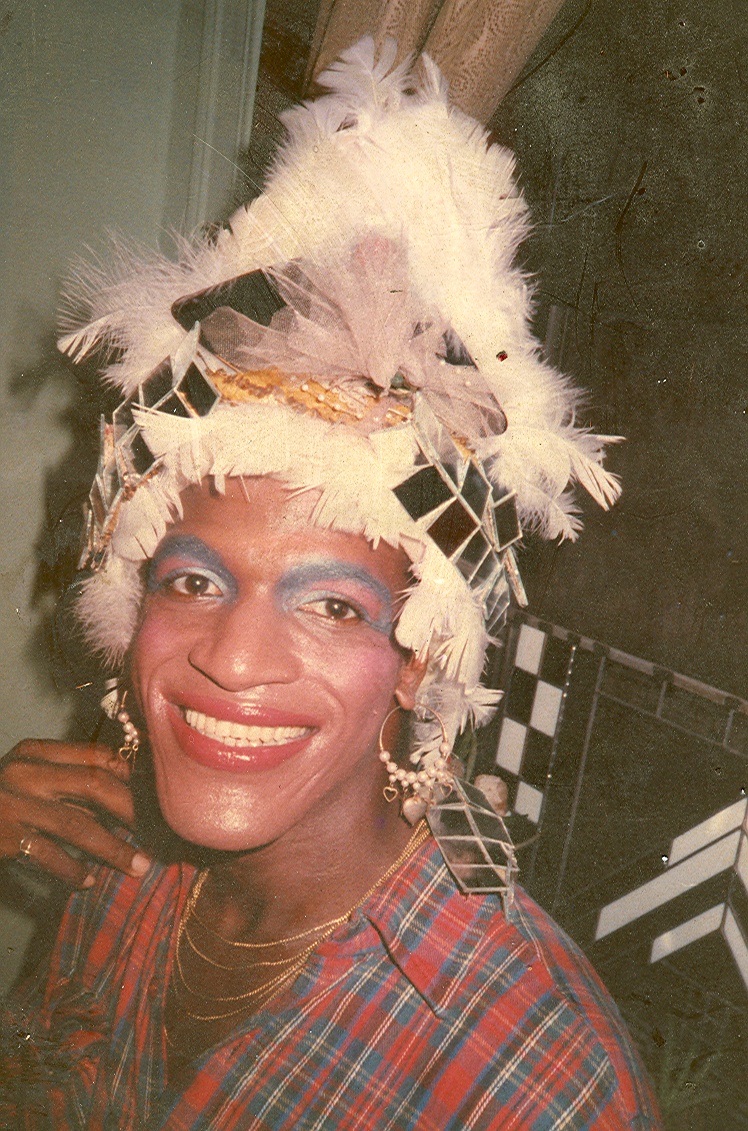
WATSON: Do you like to see your mother again?
JOHNSON: Oh, I go to see her. I call her on the phone all the time. But see, it ain’t the same when you turn gay than when you were straight.
WATSON: Did you think you were straight when you were growing up there?
JOHNSON: Never. But I didn’t have any sex either. [Laughs]
WATSON: Bob Storm said that you always used to say you never dreamed you’d come to New York and be a drag queen.
JOHNSON: I really didn’t. When I was in New Jersey, I never even thought that I’d really become, uh… really gay at all. Cause I thought gayness was a dream. I thought it was something that people just talked about and never did. [Laughs] Because I always used to meet these people and they always used to say they wanna have… I said, “Oh, you’re just joking. You don’t really do things like that, do you?”
WATSON: So you were gay, but—
JOHNSON: I wasn’t gay. I stayed asexual. For 17 years.
WATSON: So the first time you had sex was when you were 17?
JOHNSON: Yes. I waited till I came to New York.
WATSON: How come you came to New York so young?
JOHNSON: When I was a kid in New Jersey, that’s all people ever talked about—New York and Staten Island, all the gay people.
WATSON: And what did you think New York was going to be like from everything they said?
JOHNSON: Well, they told me Greenwich Village was very fun. If I go to New York I should go to the Village. And so when I came here I went to, uh… Village Gate. And I went to, uh, this other bar called Eighth Wonder. But I was wondering where the gay people were. I said, “This don’t look too gay to me. I can’t see anybody gay in this city.” They say there’s a lot of homosexuals here but where are they? [Laughs] Then I started seeing all these little nelly things hanging around on Sixth Avenue. I said, “Oh, this must be the gay section.”
WATSON: Uh-huh.
JOHNSON: But I’d say, “Oh, these police are arresting them all.” Then I found out they were hustling over there on Sixth Avenue by Howard Johnson’s. And you used to get arrested in those years for just putting on a little makeup. In 1967, they were taking gay people to jail by the busload on 42nd Street.
WATSON: For hustling?
JOHNSON: For just loitering in a restaurant. Not exactly hustling.
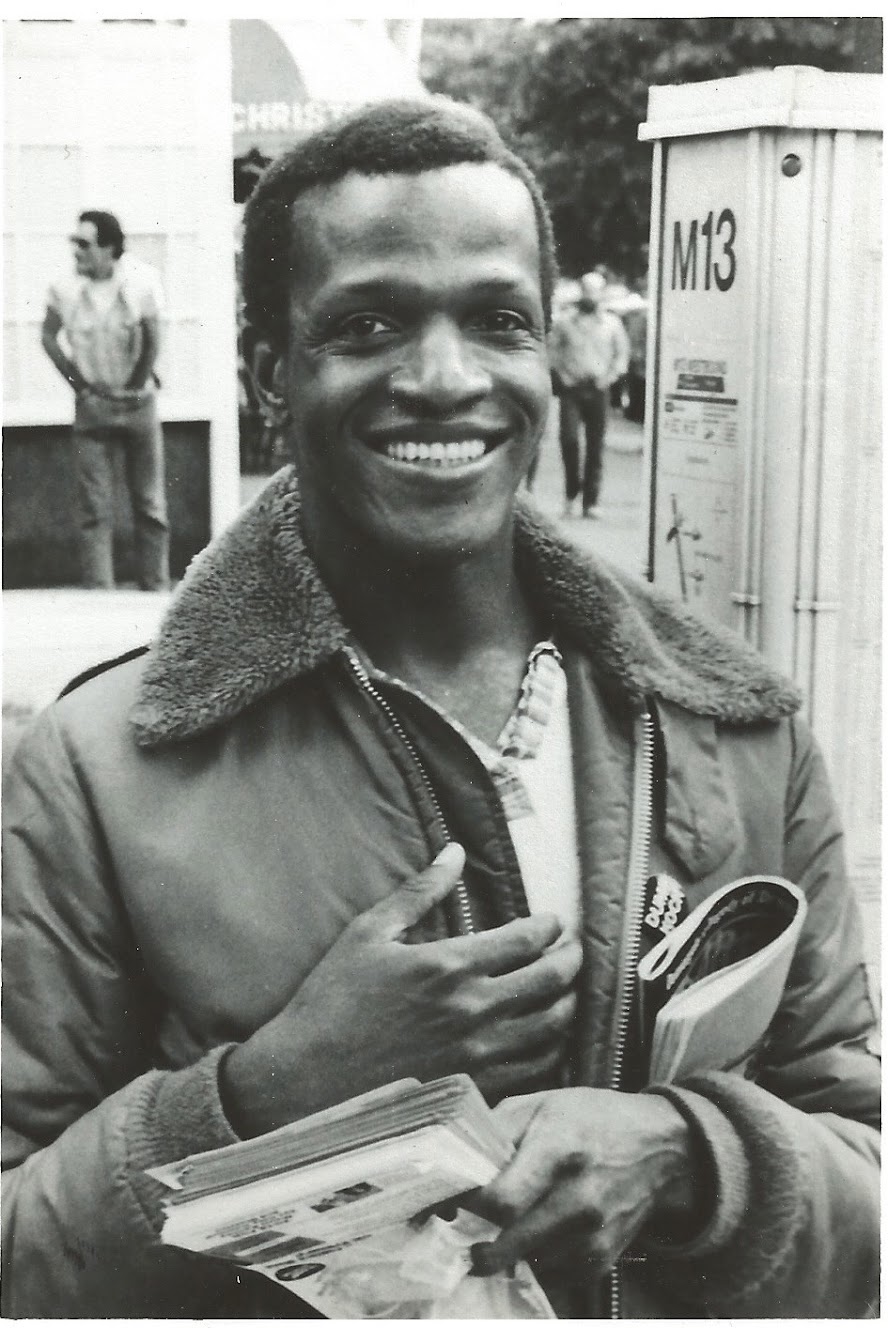
WATSON: So when you saw those people hustling on Sixth Avenue, is that how you started hustling or—
JOHNSON: No, I was scared.
WATSON: How did you get in with gay people after that?
JOHNSON: They just started saying “hello” to me all the time. Then I started saying “hello” to them. Then we became very good friends. We got busted together a couple of times.
WATSON: I bet it takes a lot of brain work working in the street. I mean, you have to know people, don’t you?
JOHNSON: The streets are the pits. You have to follow your mind pretty much. You have to feel whether you wanna go out with a person or not.
WATSON: How do you figure that out?
JOHNSON: When cars stop, you always check the back license plate. You need to follow the car, see if you see any guns or knives any place.
WATSON: And you just tell the person you’re doing that?
JOHNSON: You don’t tell him you’re doing that. You just do it on your own.
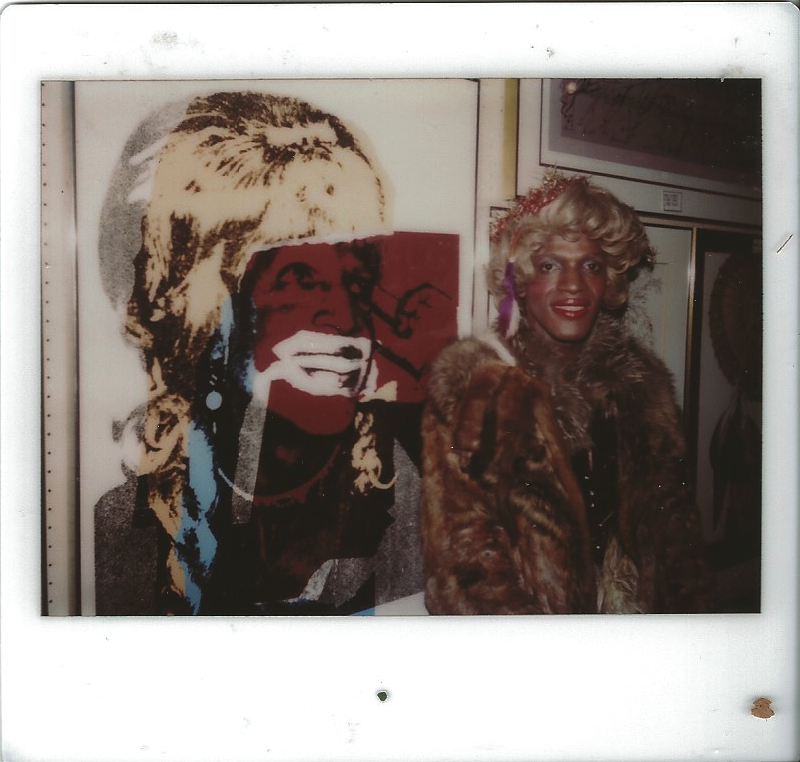
WATSON: Do you judge much from the way they look?
JOHNSON: Yeah, you gotta judge from the way they look sometimes.
WATSON: What are the real giveaways that this guy’s somebody you don’t want to go out with?
JOHNSON: Like, short haircuts sometimes, mustaches.
WATSON: Short haircuts generally means it’s not somebody good?
JOHNSON: They might be crazy. They might be police. Especially heavy-duty men, like real heavy, fat. I say, “Oh, that’s the police.” You can usually smell a policeman.
WATSON: With your nose?
JOHNSON: No, you just look and it smells like the police.
WATSON: Have you gotten caught by police?
JOHNSON: I have a long record for loitering and prostitution.
WATSON: How many counts do you think?
JOHNSON: Oh, at least a hundred.
WATSON: Really? So have you been in a hundred times?
JOHNSON: Surely, but over the years. The last 17 years of my life has been built mostly around sex and stuff like that. Because being a drag queen, you always gotta do dating and hustling and stuff like that.
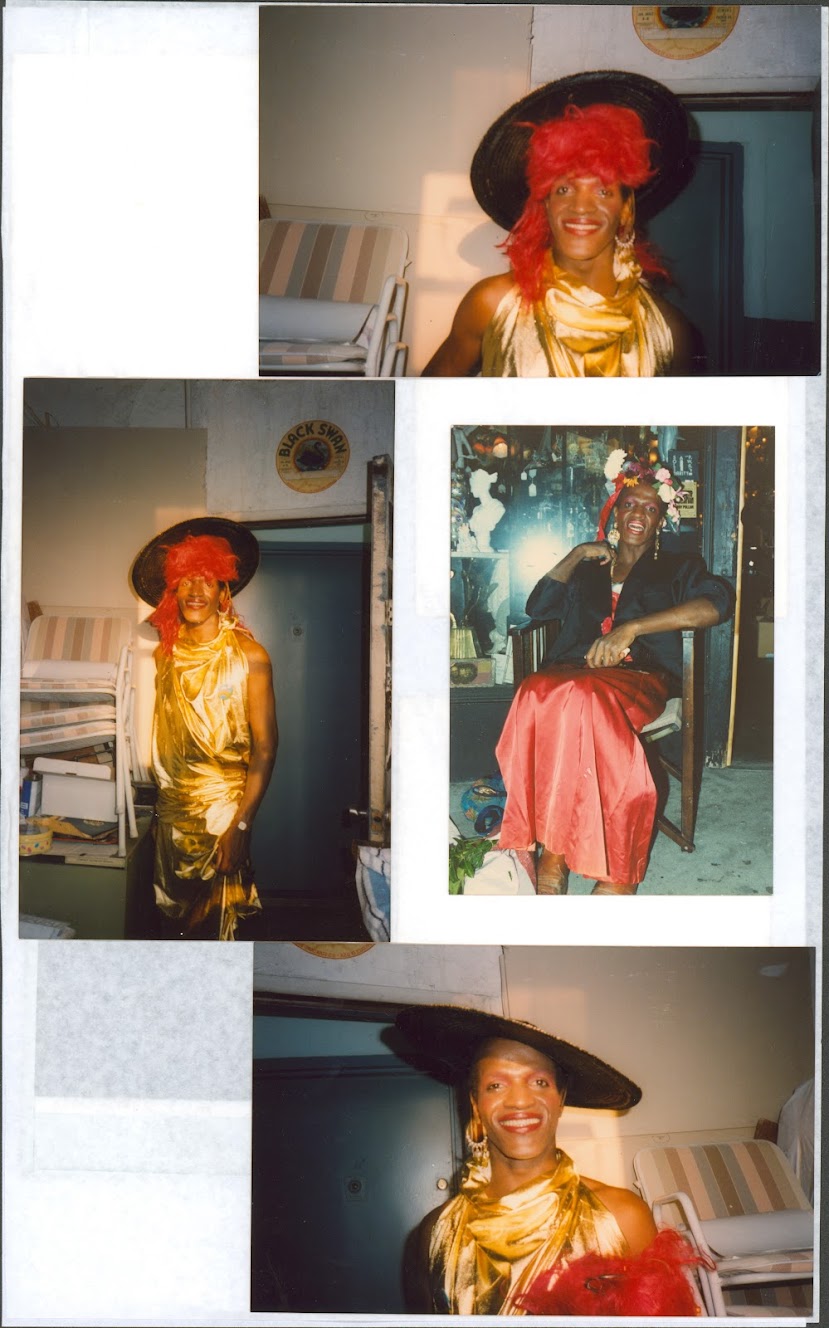
WATSON: Do you like dating?
JOHNSON: Oh, no. I get very bored sometimes. Dating’s like a curiosity to me. But like, you really wanna see whether this person really wants to go out or not. Or they’re just out there bullshitting. Like, a lot of times somebody will say they wanna go out for blowjob and then you get there and they say, “I wanna fuck.” And then some people say, “Oh, I thought you were a woman.” You know, it’s like a bunch of little head trips.
WATSON: Well, how do you handle that?
JOHNSON: I think of all kinds of lines to say, but the one I say the most is, “Uh uh. Honey, this is like Macy’s Department Store. If you like the merchandise, you take it. If you don’t, I got to go.”
WATSON: What really attracts a straight man?
JOHNSON: Probably big tits and a short pair of hot pants. And long hair. They always love long hair.
WATSON: Is it straight long hair, or curly long—
JOHNSON: It’s straight long hair.
WATSON: Blonde or black?
JOHNSON: They don’t seem to like curly hair on black people. They like the long, wavy hair.
WATSON: If you want to attract a gay man, what do you wear?
JOHNSON: Oh dear, it’s so easy to attract gay men. But darling, it’s not easy to turn them on unless you’re butch. They always want you to be butch for them just about all the time.
WATSON: Do you get butch for them?
JOHNSON: Sometimes. It depends.
WATSON: Do you like being butch?
JOHNSON: No, I’m not really turned on by being butch. I used to be butch. I used to go to the Upper East Side, a gorgeous little apartment.
WATSON: Really?
JOHNSON: Any time I wanted to stay there, I could stay there. I didn’t like it. It was just too much for me. I couldn’t take it every day.
WATSON: Did you have to be butch living up there?
JOHNSON: Yes. I used to wear these little three-piece suits. But I never liked it.
WATSON: How much [money] do you usually make a day?
JOHNSON: I haven’t been making anything a day lately. Like yesterday, I didn’t make nothing. Today I made six dollars. Sometimes, I used to always make 40, 50 dollars a day. But a lot of these numbers don’t like me in these long pants. They like me in shorts and stockings. But you gotta have a place for that, you know?
WATSON: You have to have a place to live in order to do that?
JOHNSON: Right, do your hair… yeah.
WATSON: Where do you do your hair?
JOHNSON: Oh, I just do it any place.
WATSON: At the baths?
JOHNSON: No, just walking down the street
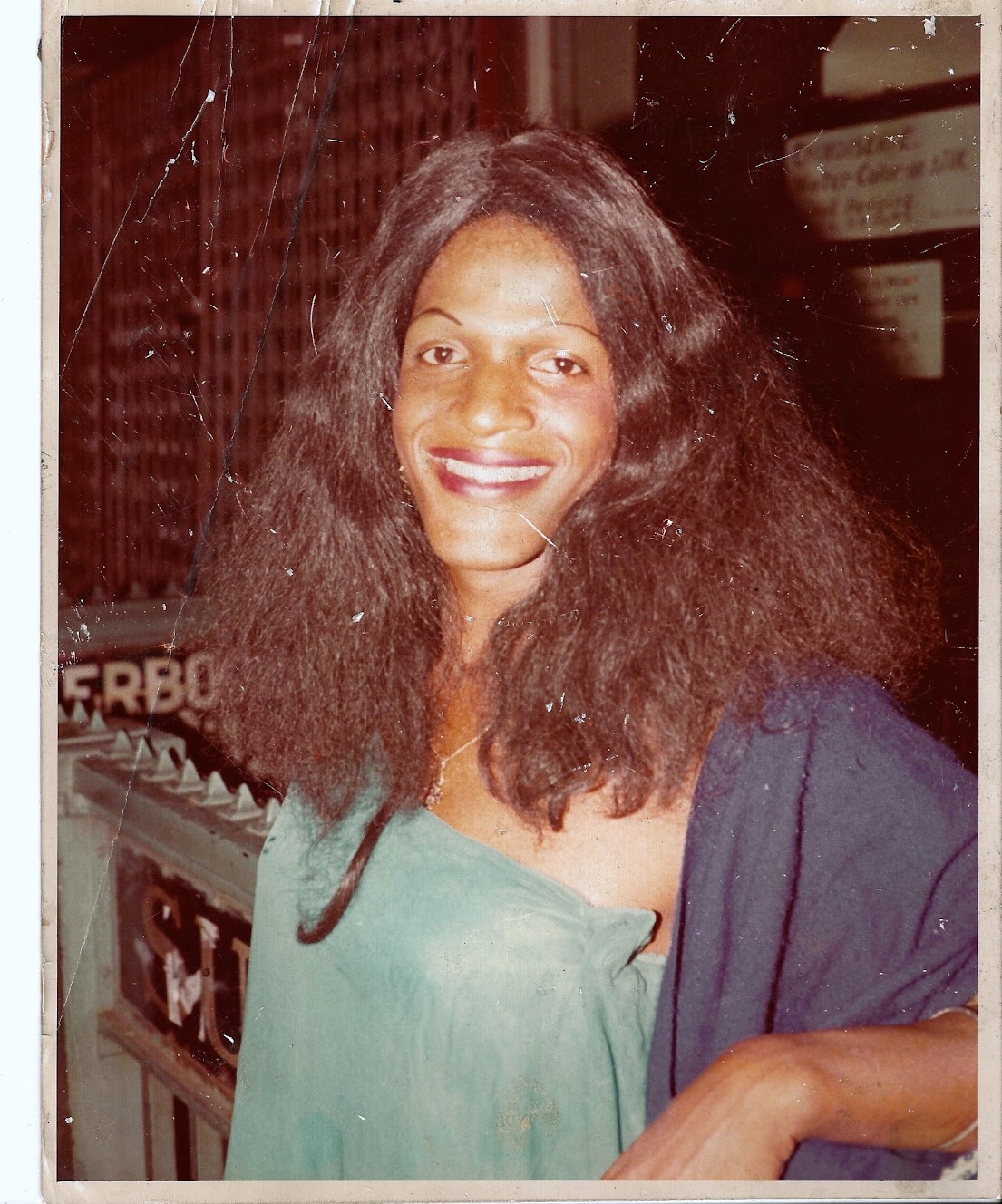
WATSON: You were at Stonewall, weren’t you?
JOHNSON: Yes. I was at the Stonewall riot. It was my birthday, it was August.
WATSON: You were there that night when the cops broke in.
JOHNSON: Yes, I was there that night. I was given a birthday party uptown and nobody showed up. It was about August 27th, because I gave my birthday party a couple of days late. So it must have been about the 27th or the 26th.
WATSON: Can you describe what happened?
JOHNSON: Well, there was two raids on the Stonewall before the Stonewall riot broke out. And they lined everybody up against the wall. And then they’d have us all get out of the bar, you know, and they closed the bar for the night. The police set the bar on fire. All this happened in August. Then, when my birthday came up, I wondered why nobody came uptown. I came downtown. And there was riots in the street. These police were out there with all their helmets and we started throwing over cars.
WATSON: You started what?
JOHNSON: Throwing over cars. [Laughs]
WATSON: What time did you come down?
JOHNSON: It must’ve been about 11:30. We were out there all night.
WATSON: Were you fighting with the police at all?
JOHNSON: No, I didn’t fight with the police. I couldn’t be bothered.
WATSON: Were you in drag that night?
JOHNSON: Yes.
WATSON: What was it like for you that night at the riot?
JOHNSON: I said it was about time. That’s when I came out, at Stonewall. I really felt glad.
WATSON: That’s when you stayed out?
JOHNSON: Yes. And I’m staying out too.
WATSON: Do you think you’ll stay out forever?
JOHNSON: I don’t know. I guess it’s hard to see the future.
